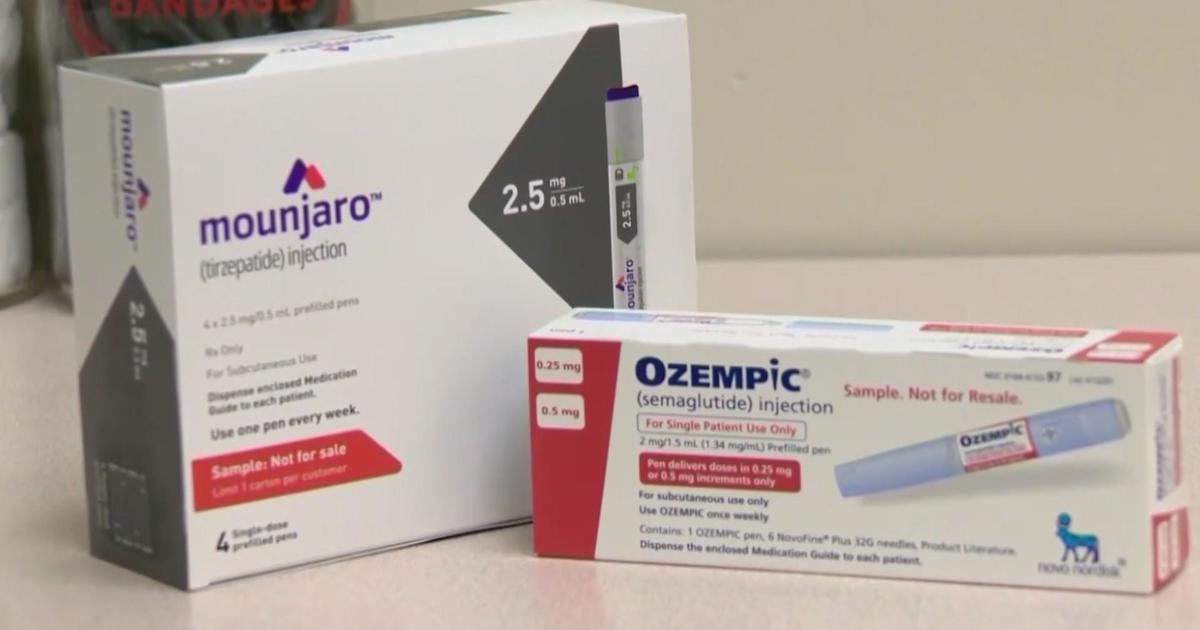Denver D.A. Says Report Finds 'No Pervasive Issues Of Racism, Bias' In Her Office
DENVER (CBS4) - Denver District Attorney Beth McCann says the results of a study announced Wednesday found there were no pervasive issues of racism or bias found in her office but there were additional opportunities to ensure justice for all. Communities leaders who joined McCann on the virtual news conference commended the report as a step in the right direction but also cautioned it was simply one piece of a larger puzzle when it comes to reform in the criminal justice system.
"As I was considering whether to run for Denver District Attorney, one of my major concerns was the disproportionate representation of people of color in the criminal justice system often both as victims and defendants," McCann said on the video conference call. "The people of Denver have entrusted me and the Denver DA's office with this important constitutional duty."
She commissioned the analysis of felony cases accepted for prosecution by the City and County of Denver between July 1, 2017 to June 30, 2018. An outside researcher was contracted and the Colorado Evaluation and Action Lab at the University of Denver funded the project. Case file data for adult felonies and interviews with prosecutors informed the research, finding no difference between Black, Hispanic, and white defendants in general plea dispositions, according to a news release.
"I am pleased but not surprised to announce that the study found no pervasive issues of racism, bias, or implicit bias, in the office," McCann went on to say on the call. "In some limited areas, where we need to look further, there is a discrepancy, and people of various races and ethnicities do have different outcomes."
LINK: Read The Report
Cases involving Black defendants were more likely to be dismissed during prosecution than those cases involving white defendants, Hispanic defendants were equally likely to have their cases dismissed as their white counterparts. But among the cases that were not dismissed, white defendants were more than twice as likely to have a case deferred than cases involving either Black or Hispanic defendants.
"The criminal justice system is one system in all of the systems that we have in the community including education, health care, all kinds of influences that people have in their lives," McCann said when asked about the historic racial disparities that were not reflected in the report.
Drug felony cases involving white defendants were more likely to be handled in drug court rather than district court or some other unit, compared to Black and Hispanic defendants with drug felony cases, according to a news release about the report. Prosecutors interviewed for the study said they were concerned about the overrepresentation of people of color in the criminal justice system but felt they were unable to correct the inequalities. They did not agree in the role prosecutors should play when dealing with disparities caused by policing.
"Minority communities, especially African American and Latino communities are overpoliced," said Dr. Robert Davis, the president of SWG UnBoxed, a professional training and coaching company. He was asked to speak on the video conference call. "There is a racial component and dare I say, a racist component to how policing is done in African American communities which then results in how they show up in the District Attorney's office."
Recommendations outlined by the report include further evaluating case refusals and dismissals, reviewing eligibility requirements in regards to equitable outcomes, and increasing cultural awareness and supporting racial justice. McCann says some reforms advised by the report have already taken place including a new misdemeanor drug court system that better reflects current laws in Colorado. Further guidance includes getting cases that will eventually be dismissed to be refused from the start.
"This is one approach to the larger system of those oppressive issues and systems that have barged on to folks of color," Dr. Jose Silva, the CEO of The Colorado Association for Infant Mental Health and the former chair of the Denver Latino Commission. He also spoke on the video conference call.
Organizations involved in criminal justice reform in Colorado declined to speak on the record about the report but expressed concern with the findings, planning to further study the details and react next week. A perspective that is built, in part, on a year of social unrest and an ongoing national conversation about racial justice.
"What it doesn't answer is how do we go far enough up stream to actually prevent those, that the DA's office absolutely has a role in addressing disparities and prosecutorial discretion," said Dr. Elysia Clemens, the deputy director and COO of the Colorado Lab. "When we see disparities at the end of the system, it means there is a long way to go back and say how did people get to that point to begin with."



